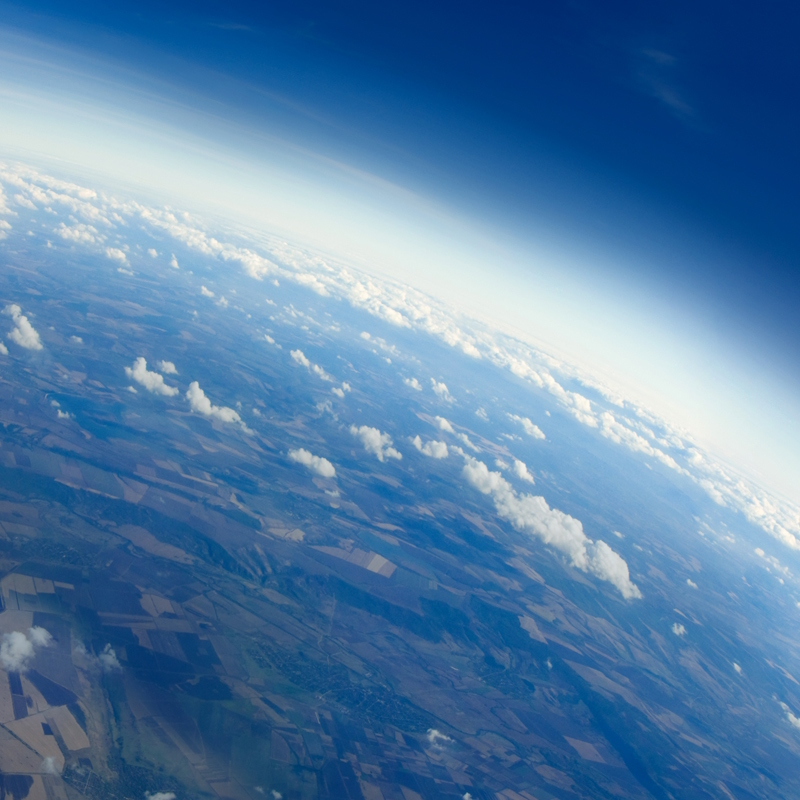In September 2016, a Royal Society discussion meeting was held to examine the less obvious but important indirect impacts of climate change on the oceans.

Tell us about yourself and your research.
I am Emeritus Professor of Earth System Science, and no longer very active as a researcher. I previously worked on a wide range of environmental issues, including marine pollution and fish population dynamics, before deciding to focus on the ocean’s role in the Earth system, particularly in relation to climate change. My most recent research involved using simplified ‘intermediate complexity’ models of the atmospheric and oceanic circulation and biogeochemistry to improve our understanding of past natural climate change, especially ice-age cycles.
What inspired you to pursue this field of research?
After my PhD I decided that I was more interested in environmental problems than in basic science, and switched to working on air pollution. After an interesting scientific ’journey’ I concluded that understanding climate (and its changes in the past and in the future) was really the most serious, interesting and intractable problem, and so decided to focus my research efforts there.
What is ocean ventilation and why is it important to study?
The surface oceans are in contact with the atmosphere, but the interior of the deep ocean is ventilated only by the overturning circulation and by small-scale turbulent mixing. Both of these are likely to be suppressed in the warmer and more highly stratified ocean we are creating by global warming, and all of this is likely to reduce the oxygen supply to the sub-surface regions. This has serious potential impacts on biogeochemical cycles and the habitability of some ocean regions for fish and other animals. This is additional to the impacts of warming and acidification that are already causing ecosystems to readjust in ways that are difficult to predict, and we need to know what these impacts are likely to be and whether they are serious.
How does ocean ventilation fit into the bigger picture of climate change?
The oceans are a massive sink for both heat and carbon dioxide, and are buffering the system and slowing the rate of anthropogenic climate change. The ability of the oceans to do this is heavily reliant on the same ventilation processes that affect oxygen, so this is all part of the same big picture. It’s just that the effects on interior ventilation and oxygenation are rather subtle and more complex than those on heat, CO2 and acidification near the surface, so they have not yet been studied so thoroughly and are considerably more difficult to predict.
What was the take home message from the discussion meeting?
The precise ways in which ventilation and oxygenation are affected by warming are still not well understood, and the predictions of the current generation of models do not agree very well with the observed changes that are taking place. The reasons for this are not at all obvious, not least because turbulent mixing in stably stratified fluids is itself still not well understood, and because various effects of warming affect oxygenation in different ways. So there is a major challenge to understand all these better so that we can assess how serious the impacts on the Earth system (and therefore on animals including us) are likely to be.
In your opinion, what are the biggest challenges that climate change science will face in the coming years?
We know enough about the likely warming on a global scale for the next century or so to take action to reduce emissions now, and the problem is to find ways to make that happen. Our ability to predict changes on smaller regional and national scales is much less satisfactory, and our ability to predict much further into the future is limited because we still don’t fully understand the surprising sensitivity of climate to small changes of forcing, such as those caused by long-term changes in the Earth’s orbit. But we do know that once extra CO2 has got into the atmosphere, and the Earth has warmed, it will not return to normal for thousands of years. I think we need to know better where we are headed so that we can plan to minimise the impacts, especially on the most vulnerable people who have the least ability to adapt to change. It’s generally a bad idea to start something that you can’t stop, but we have done that already and now we have to deal with the consequences.
What’s next for you and your research?
My effort is now more directed at encouraging younger researchers and communicating the results of scientific research to the public and especially to those who are responsible for making policies that could reduce the problems caused by climate change. For example, I am leading the organisation of a major Science-Plus meeting for the Royal Society later this year, on “Decarbonising UK energy: effective technology and policy options for achieving a zero-carbon future”. I am also concerned that we are making so little progress on reducing carbon emissions that we may need to consider more radical responses, and I continue to try to convince people to think seriously about possible future ways to remove greenhouse gases from the atmosphere, and to figure out whether (and if so how) we could maybe even actually intervene to reduce warming by reflecting a little sunlight back into space (geo-engineering).
